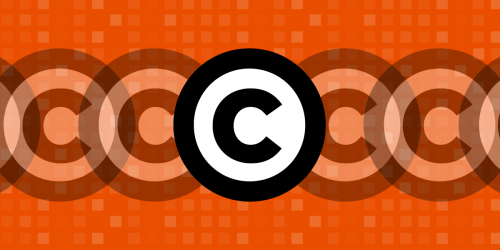If there's one thing Congress got right when it passed the Stored Communications Act (SCA) in 1986, it was prohibiting civil litigants from accessing the contents of electronic communications stored by communications providers. Otherwise, every civil dispute would result in myriad requests for content like emails, tweets, and Facebook postings, with only the communications providers standing between aggressive litigants and your electronic privacy. Now a federal court in Los Angeles will have to decide whether an intellectual property dispute is enough to disregard the strong privacy protections of the SCA. As we tell the court in an amicus brief, the answer to that question is no.
Here's the background: in May 2011, luxury goods conglomerate Compagnie Financiere Richemont, which includes fashion companies like Chloe and Dunhill, and watchmaker Montblanc, sued TradeKey, a Pakistani website that allows users across the world -- many of whom are businesses -- to buy and sell a wide range of goods with other members. TradeKey's website provided email and chat communications services so buyers and sellers could communicate with each other directly, and copies of those communications were kept on TradeKey's servers. By May 2011, the site had more than 5.3 million registered users and averaged 250,000 visitors a day. Today, it has over 6 million registered users. According to the luxury companies, the TradeKey website facilitated the sale of counterfeit luxury goods.
Now the tricky part: after filing suit, the luxury brands promptly ran to court to seek a seizure order. Under trademark law, a court can order the seizure of counterfeit goods, as well as "records documenting the manufacture, sale, or receipt of things involved" in the distribution of counterfeit goods. This seizure order is issued ex parte, meaning the person whose goods and records are about to be seized has no knowledge and thus no opportunity to challenge the seizure before it occurs.
Here, the ex parte seizure order authorized the companies to seize not only counterfeit goods, but also all electronic data about the sale and manufacture of counterfeit goods. That included "publicly posted Internet content" demonstrating offers made for counterfeit merchandise, "traffic logs evidencing the volume of underlying counterfeit activity," and most importantly, "member data, email communications and/or payment records" in TradeKey's possession about members selling counterfeit goods.
Armed with this seizure order, and with the assistance of the U.S. Marshals Service, the companies went to Liquid Web, a Michigan company that hosted the servers containing TradeKey's website, powered down and seized 46 servers and 100 hard drives, and began copying the entire contents of these devices. The devices contained not only TradeKey's website and a backup of all the communications sent between users, but also data from other websites owned by TradeKey's parent company that also used Liquid Web to host its servers. As a result, the luxury good companies obtained the contents of 9 million stored emails and 71,000 stored chats. Naturally, most of these communications had nothing to do whatsoever with the trademark dispute that prompted the seizure in the first place.
TradeKey fought back, suing the companies for violating the SCA. The SCA generally prohibits communications providers from disclosing the contents of electronic communications, and although the SCA contains some exceptions permitting law enforcement to obtain content, none of these exceptions apply to private litigants in a civil dispute. As we explain in the amicus brief we filed in support of TradeKey urging the court to deny the luxury companies' motion to dismiss TradeKey's case, the SCA's prohibition on civil litigants' accessing the contents of electronic communications is no accident. When it enacted the SCA, Congress made clear it was attempting to prohibit "unauthorized private parties" from accessing the content of electronic communications from communications providers.
What's truly troubling about this case is the luxury companies' argument that trademark law trumps the SCA, even though the SCA says nothing of the sort. Indeed, under their rationale, any civil litigant can go to their local courthouse and obtain a court order requesting a provider turn over the contents of stored electronic communications. It will be up to the communications provider to challenge the request, or in other words, pay expensive legal fees rather than simply releasing the information. And because some court orders, like a subpoena, can issue with no judicial action or supervision at all, zealous civil litigants have every incentive to try their luck and hope the service provider complies. This would be an unprecedented and dangerous dismissal of the SCA.
This case highlights the precise threat Congress sought to eliminate by passing the SCA in the first place. Literally millions of emails were allegedly seized -- with an essentially illegal court order -- that had nothing to do with counterfeit luxury goods. It should not be this easy for litigants to get their hands on people's communications. Courts need to be vigilant to ensure the privacy protections existing in the SCA have teeth, and that aggressive civil litigants don't make electronic privacy the casualty of their legal disputes.








